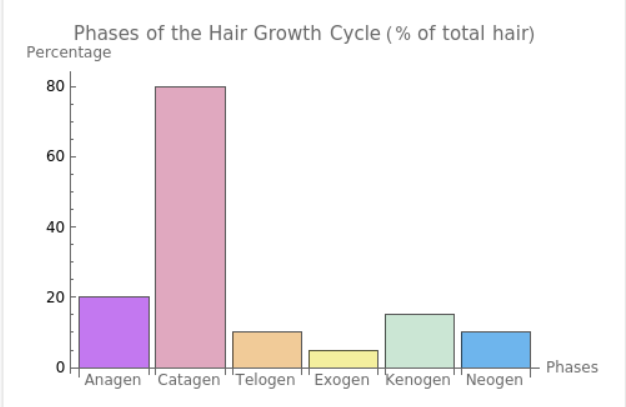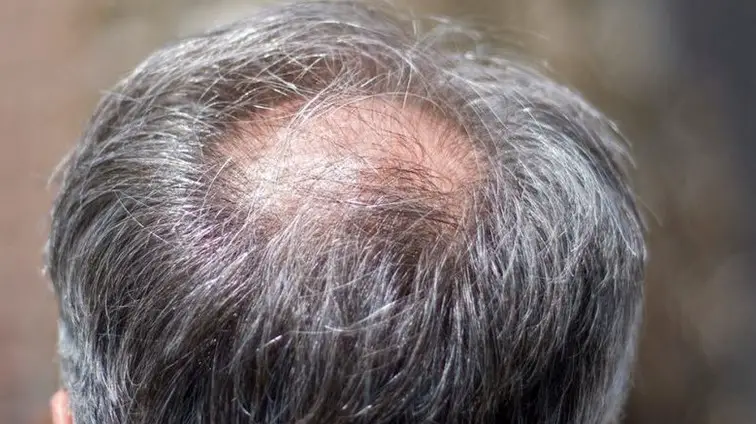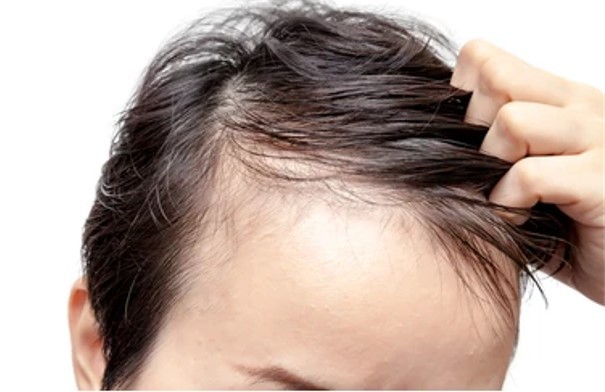Have you ever looked at your hairbrush and wondered, “Will I go bald if my hair keeps falling out?” If so, you’re not alone. Many people, both men and women, grapple with this question when they notice an alarming amount of hair strands on their brush, pillow, or shower drain. But before you panic, it’s important to understand that hair loss is a complex issue and doesn’t necessarily mean you’re going bald.
In this comprehensive guide, we’ll delve into the science behind hair loss, explore various types of hair loss, and discuss factors that could influence whether or not you’ll go bald. We’ll also provide practical tips on preventing and managing hair loss, and answer some frequently asked questions on the topic.
Whether you’re a man noticing a receding hairline or a woman worried about thinning hair, this article is designed to provide you with valuable insights and reassurance. So, let’s embark on this journey of understanding hair loss together.
Ready to learn more? Let’s dive in! And remember, if you’re looking for a quick way to assess your risk of going bald, you might find our Will I Go Bald Calculator helpful.
Key Takeaways
Here are the key takeaways from the article:
- Understanding Hair Loss: Hair loss is a part of the natural hair growth cycle. Disruptions in this cycle can lead to excessive hair fall, but it doesn’t necessarily mean you’re going bald.
- Types of Hair Loss: There are several types of hair loss, each with its own causes and characteristics. Understanding these can help you identify what might be causing your hair to fall out.
- Factors Influencing Baldness: Genetics, age, gender, hair care practices, medical conditions, and certain medications can influence whether or not you’ll go bald.
- Preventing and Managing Hair Loss: There are various strategies to prevent and manage hair loss, including adopting healthy hair care practices, exploring medical treatments, making lifestyle changes, and consulting with a healthcare professional.
- Frequently Asked Questions: The article addresses common questions about hair loss, providing clear and concise answers to help readers understand this complex issue.
- Conclusion: Hair loss can be distressing, but with the right information and resources, it’s manageable. Early action, a healthy lifestyle, and professional consultation are key to managing hair loss.
Stay tuned as we unravel the mysteries of hair loss and answer the pressing question: “Will I go bald if my hair keeps falling out?”
Note: This article is for informational purposes only and should not replace professional medical advice.
The Science Behind Hair Loss
Understanding hair loss begins with understanding the hair growth cycle. Our hair grows from follicles, tiny pockets in the skin, and each hair follows its own cycle at its own pace. This cycle consists of three stages:
- Anagen Phase: This is the growth phase, which can last between 2 to 7 years. At any given time, about 80-90% of your hair is in this phase.
- Catagen Phase: This is a short transitional phase that lasts about 2-3 weeks, where the hair follicle shrinks and the hair stops growing.
- Telogen Phase: This is the resting phase, which lasts for about 3 months. After this, the hair falls out and a new one begins to grow, starting the cycle anew.
Now, you might be wondering, “If hair loss is a natural part of the hair growth cycle, why am I noticing more hair fall than usual?” The answer lies in the balance of the hair growth cycle. When this balance is disrupted due to various factors, you may experience excessive hair fall, a condition known as telogen effluvium.
Here is a chart representing the different phases of the hair growth cycle:

You can learn more by Understanding the Four Stages of Natural Hair Growth.
But does hair fall mean balding? Not necessarily. Balding, or androgenetic alopecia, is a specific type of hair loss that involves the hairline receding or hair thinning at the crown of the head. It’s primarily driven by genetics and hormones, specifically dihydrotestosterone (DHT), a derivative of the male hormone testosterone. However, women can also experience androgenetic alopecia, though the pattern of hair loss is usually different.
It’s crucial to remember that not all hair loss is a sign of impending baldness. Many factors can cause temporary hair loss, including stress, diet, certain medications, and underlying health conditions. If you’re noticing more hair fall than usual, it’s worth exploring these factors before jumping to conclusions.
For a more in-depth look at how hair loss can be a sign of other health issues, check out our article on Losing Hair in the Shower.
In the next section, we’ll delve into the common types of hair loss, their causes, and symptoms. This will help you better understand what might be causing your hair to fall out and whether it’s a temporary situation or a sign of permanent hair loss.
Stay tuned, and remember, knowledge is the first step towards taking control of your hair health.
Common Types of Hair Loss
While hair loss can be a distressing experience, it’s important to remember that not all hair loss is the same. There are several types of hair loss, each with its own causes and characteristics. Understanding these can help you identify what might be causing your hair to fall out and guide your next steps.
- Androgenetic Alopecia: Also known as male or female pattern baldness, this is the most common type of hair loss. It’s primarily driven by genetics and hormones. In men, it typically manifests as a receding hairline or hair thinning at the crown. In women, it usually results in overall hair thinning without a receding hairline.
- Telogen Effluvium: This is a temporary form of hair loss that happens when a significant number of hair follicles enter the telogen (resting) phase at the same time, leading to increased hair shedding. It can be triggered by stress, illness, childbirth, or certain medications.
- Anagen Effluvium: This type of hair loss occurs during the anagen (growth) phase and is most commonly associated with chemotherapy, which disrupts the growth of rapidly dividing cells, including hair follicles.
- Alopecia Areata: This is an autoimmune condition where the body’s immune system attacks the hair follicles, leading to hair loss in patches. It can affect any hair-bearing area of the body, including the scalp, eyebrows, and beard area.
- Traction Alopecia: This is caused by hairstyles that pull tightly on the hair, such as ponytails, braids, or buns, leading to hair loss primarily around the hairline.
- Cicatricial Alopecia: Also known as scarring alopecia, this involves the hair follicles being destroyed and replaced by scar tissue, leading to permanent hair loss.
If you’re noticing your hair thinning or a receding hairline, you might be dealing with androgenetic alopecia. For a more detailed look at this type of hair loss, check out our article on Signs of Receding Hairline.
In the next section, we’ll explore various factors that could influence whether or not you’ll go bald. This includes genetic factors, age and gender, hair care and styling habits, and medical conditions and medications.
Remember, understanding your hair loss is the first step towards finding the right solutions. So, keep reading to learn more about what might be causing your hair to fall out and what you can do about it.
Stay tuned as we delve deeper into the world of hair loss and balding.
Will I Go Bald? Factors to Consider
If you’re noticing increased hair fall, you might be asking yourself, “Will I go bald?” The answer to this question depends on several factors. Let’s explore some of the key factors that can influence whether or not you’ll go bald.
- Genetic Factors: Genetics play a significant role in determining whether you’ll experience balding. If you have a family history of baldness, particularly on your mother’s side, you may be more likely to go bald. If you’re curious about your genetic predisposition to baldness, our Will I Go Bald Calculator can provide some insights.
- Age and Gender: Hair loss and balding become more common with age. While men are more likely to experience balding, women can also experience significant hair thinning as they age.
- Hair Care and Styling Habits: Certain hair care practices, such as using harsh chemicals or heat styling tools, or wearing tight hairstyles, can lead to hair damage and loss over time.
- Medical Conditions and Medications: Certain medical conditions, such as thyroid disorders, autoimmune diseases, and hormonal imbalances, can cause hair loss. Additionally, certain medications, including some types of birth control and chemotherapy drugs, can also lead to hair loss.
- Stress and Lifestyle Factors: High levels of stress, poor nutrition, lack of sleep, and smoking can all contribute to hair loss.
If you’re noticing your hair thinning, it’s important to consider these factors and consult with a healthcare professional to understand what might be causing your hair loss.
For more insights on when men typically start balding, check out our article on When Do Men Start Balding?and Signs Of Balding At 20
In the next section, we’ll discuss strategies for preventing and managing hair loss. Whether it’s adopting healthier hair care practices, exploring medical treatments, or making lifestyle changes, there are several ways to address hair loss and maintain your hair health.
Remember, understanding your hair loss is the first step towards finding the right solutions. So, keep reading to learn more about what you can do to prevent and manage hair loss.
Stay tuned as we explore practical strategies for dealing with hair loss and balding.
Preventing and Managing Hair Loss
While hair loss can be distressing, the good news is that there are several strategies you can adopt to prevent and manage hair loss. Here are some practical tips:
- Healthy Hair Care Practices: Be gentle with your hair. Avoid hairstyles that pull tightly on your hair, and limit the use of heat styling tools and harsh chemical treatments. Use a gentle shampoo and conditioner, and consider using hair products that are specifically formulated to help with hair loss.
- Medical Treatments and Procedures: There are several medical treatments available for hair loss, including topical treatments like minoxidil, oral medications like finasteride, and procedures like hair transplant surgery. It’s important to consult with a healthcare professional to understand which treatment might be best for you.
- Natural Remedies and Lifestyle Changes: A balanced diet, regular exercise, adequate sleep, and stress management can all help promote healthy hair growth. Some people also find natural remedies, such as scalp massages or essential oils, helpful.
- When to See a Doctor: If you’re noticing significant hair loss, it’s important to consult with a healthcare professional. They can help identify the cause of your hair loss and guide you on the best course of action.
If you’re wondering how to tell if you’re balding, our article How to Tell If You’re Balding provides some helpful insights.
Remember, while hair loss can be a challenging experience, it’s not something you have to face alone. There are resources and treatments available that can help. The key is to take action early and consult with a healthcare professional if you’re concerned about your hair loss.
In the next section, we’ll answer some frequently asked questions about hair loss. Whether you’re wondering why your hair is falling out more than usual, how to stop hair fall immediately, or why you’re losing so much hair, we’ve got you covered.
Stay tuned as we delve into your most pressing questions about hair loss and balding.
FAQs about Will I go bald if my hair keeps falling out?
Hair loss can raise a lot of questions. In this section, we’ll address some of the most frequently asked questions about hair loss and balding.
Can hair loss be a sign of something serious?
Yes, in some cases, hair loss can be a sign of underlying health issues, such as thyroid disorders, autoimmune diseases, or hormonal imbalances. If you’re experiencing significant hair loss, it’s important to consult with a healthcare professional.
Why is my hair falling out more than usual?
Increased hair fall can be due to a variety of factors, including stress, poor nutrition, certain medications, or underlying health conditions. It can also be a sign of telogen effluvium, a temporary form of hair loss.
How to stop hair fall immediately?
While it’s not possible to stop hair fall immediately, adopting healthy hair care practices, maintaining a balanced diet, managing stress, and consulting with a healthcare professional can all help manage hair loss. For more tips, check out our article on How to Stop Hair Fall Immediately.
Why am I losing so much hair female?
Women can experience hair loss due to a variety of factors, including hormonal changes (such as those that occur during menopause), stress, certain medications, and underlying health conditions. Female pattern hair loss, or androgenetic alopecia, can also cause hair thinning in women.
Will I go bald if I have thick hair?
Having thick hair does not necessarily protect you from going bald. Balding is primarily determined by genetic factors and hormones. If you’re noticing your hair thinning, it’s worth consulting with a healthcare professional to understand what might be causing your hair loss.
Remember, while hair loss can be a challenging experience, it’s not something you have to face alone. There are resources and treatments available that can help. The key is to take action early and consult with a healthcare professional if you’re concerned about your hair loss.
In the conclusion, we’ll recap the key points from this article and provide some final thoughts on managing hair loss and balding.
Conclusion
We hope this comprehensive guide has helped you understand the complexities of hair loss and answered your pressing question, “Will I go bald if my hair keeps falling out?” As we’ve discussed, hair loss is a multifaceted issue influenced by various factors, including genetics, age, gender, hair care practices, and underlying health conditions.
While hair loss can be distressing, remember that it’s not necessarily a sign of impending baldness. There are numerous strategies and treatments available to manage and even reverse hair loss. The key is to take action early, maintain a healthy lifestyle, and consult with a healthcare professional if you’re concerned about your hair loss.
If you’re interested in learning more about hair loss and balding, we invite you to explore our other articles. For instance, if you’re noticing your hair thinning, our article on How to Tell If You Have Thinning Hair provides some helpful insights.
Remember, you’re not alone in your hair loss journey. There are resources and support available to help you navigate this challenge. Stay informed, stay proactive, and take control of your hair health.
Thank you for reading, and here’s to healthy, happy hair!
- AI Powered Bald Filter Online 2024: See Yourself with No Hair! - January 19, 2024
- Harklinikken Bad Reviews 2024: Analyzing Negative Feedbacks - January 18, 2024
- How to Get the Alex Eubank Hair | Step-By-Step Tutorial 2024 - January 18, 2024







